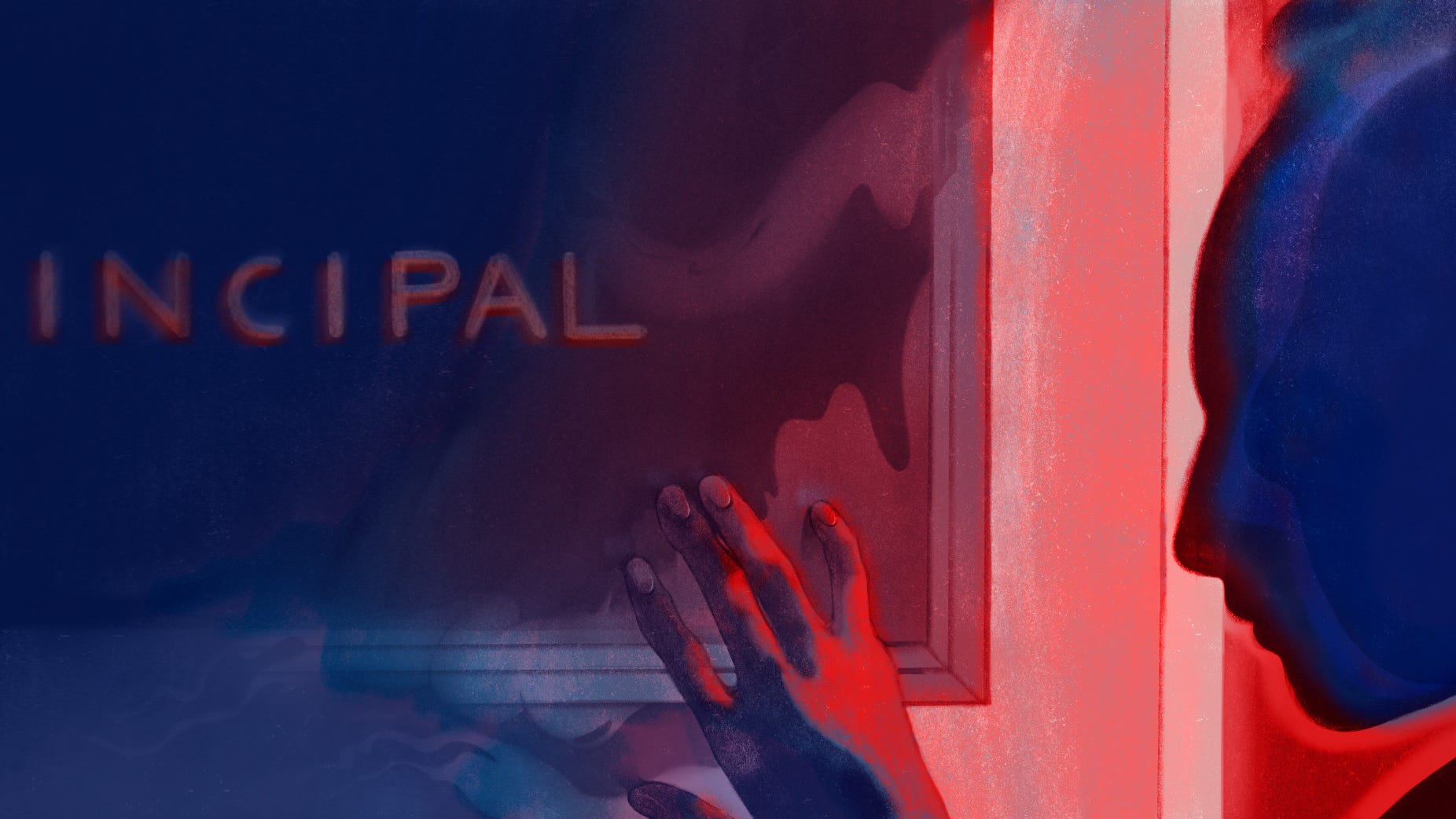How a Turkish Teacher Put a Pedophile Principal Behind Bars for 200 Years
Saadet Özkan was furious that neither the school system nor the courts was adequately inclined to seek justice for her students. So she did it herself.

Illustration by Xia Gordon
“For a long time I had been observing him,” says Saadet Özkan, 39, an elementary school teacher in Sancaklı, a village in western Turkey. “He would take one or two girls inside his office and lock the door. I became curious.”
Özkan had been working under principal Adil Şahintürk for four years before detecting what she suspected was nefarious behavior on his part. “I waited for the right time. He once left the door unlocked. I rushed in. He was standing upright, and my two seven-year-old pupils were under the table, between his legs.”
She says she screamed at Şahintürk, “What are you doing there?”
“We are playing a game,” he responded sheepishly. “They were naughty and I am punishing them. Look, we are tickling each other.”
Özkan asserts that the incident, which took place in May 2014, confirmed her suspicions that the 63-year-old principal had been sexually abusing students. After the initial shock, she embarked on a quest to extract the truth from the pupils an…
Keep reading with a 7-day free trial
Subscribe to Narratively to keep reading this post and get 7 days of free access to the full post archives.



